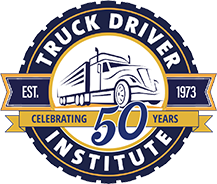What Is a Regional Truck Driver?
From food to furniture, trucks across American carry the products Americans use and consume daily. If you have ever thought about looking into a career in truck driving, you may have wondered, “What is a regional truck driver?” A regional truck driver is a truck driver that works in a specific area of the country. These drivers manage routes that have lengths that fall between local truck drivers’ and OTR drivers’ so their experience can sometimes be the best of both worlds.

The truck driving profession as a whole provides drivers with the freedom to travel and uniquely experience the country. The job also allows you to immerse yourself in the various cultures and discover new cities and towns. One of the great things about truck driving is that there are jobs that best suit each driver’s needs, including regional drivers, local drivers, and over the road drivers.
What Is a Regional Truck Driver?
A regional truck driver is a truck driver that works in a specific part of the country. Typically, companies and distributors split the U.S. into divisions usually no greater than a 1,000-mile radius. The exact regions differ per company or distributor but generally include the Northeast, the western 11 states, the central 24 states, and the southern states, or even the northern states into Canada. Regional truck driving routes can also be a handful of states rather than an entire region, depending on the size and company or distributor. Regional truck drivers drive for a set amount of time and then, depending on the company’s policy, get time off for a certain number of days. Regional truck drivers often make deliveries during the week, meaning their time off typically coincides with the weekend, allowing them to be home with their friends and family and frequently even make it home on weeknights, which is a significant draw for many truck drivers in the industry.
Regional Truck Drivers vs. Local & OTR Truck Drivers
The role of regional truck drivers differs from both local and over the road truck drivers.
Local truck drivers drive local routes and can be home every night. None of the local truck drivers hauls take longer than 8-10 hours. Local drivers also can set their schedules as long the deliveries are made by a specific deadline each week. The routes for local drivers are typically within a 200-mile radius and do not frequently stretch for long periods on the highway. However, local drivers have to navigate smaller roads and back into tight loading docs multiple times a day. Local drivers also have early mornings to accommodate for being home at night. Most local drivers begin as early as 4 a.m. and unlike regional and OTR drivers, they may be required to physically load and unload the freight. Local drivers also make the least, averaging between $500-$700 weekly.
OTR trucking refers to the truck drivers that haul freight over long distances. OTR drivers spend anywhere from 21 days to a month on the road and drive to the lower 48 states and sometimes into Canada. In addition to freight, OTR drivers haul machinery, construction materials, and other equipment. OTR drivers have the highest salaries, which can range into $80,000 per year if you work as part of a team. OTR drivers typically 34 hours off for every 70 hours worked and are limited by a maximum of 11 hours of driving per day.
Regional truck driving provides truck drivers with routes that are not on local and smaller streets than local drivers, and are also shorter trips, unlike the OTR drivers.
Benefits of Being a Regional Truck Driver
There are many benefits of truck driving, but regional truck driving
- Work in the same region in which you live, which allows drivers to be at home regularly.
- Drive on the open road and experience the country in unique ways without being gone for extended periods.
- Compensation in the range of $50,000-$60,000 per year.
- Workforce security due to the industry’s need for qualified and competent drivers
- Familiarity with your assigned area helps establish a routine and can eventually lead to not needing a map or GPS, which means you are less distracted and can be a safer driver.
- Regular scheduling so you can be aware of your free time and can eliminate surprises.
What to Expect as a Regional Truck Driver
As a Regional truck driver, you can rest assured that your schedule will usually remain consistent since most regional truck drivers drive the same route every day, week, or month. Most regional runs involved food service, mail, and moving industries. Most jobs and opportunities include:
- Delivering commercial products to factories of manufacturing units
- Hauling shipments to warehouses and retail outlets
- Local bus driver or driver for sight-seeing tours
- Delivery drivers
Most regional drives also involve drop and hook pads with a dry van truck, meaning that when a driver is making a delivery, they are not responsible for loading or unloading any materials, making the day to day work less strenuous.
Technology and Tools for Regional Drivers
In today’s logistics and transportation industry, technology plays a crucial role in ensuring efficiency and safety. Regional truck drivers benefit from a wide variety of technological tools, from advanced GPS systems for optimal route planning to telematics for monitoring vehicle health and driving habits. Mobile apps for weather forecasting, fuel management, and rest stop locations are also incredibly valuable for drivers. Embracing these technologies and tools can significantly enhance a driver’s on-the-road experience, providing them with the information and support needed to make informed decisions while keeping themselves and other drivers on the road safe.
Regional Truck Driving Challenges and How to Overcome Them
While there are numerous benefits associated with regional truck driving, there are also challenges to this position, including traffic delays, tight delivery schedules, and occasional long hours behind the road to meet delivery windows. Being able to overcome these challenges requires drivers to properly plan their routes, be patient while on the road, and embrace flexibility. Additionally, effective communication with dispatchers and clients will help manage expectations and provide schedule adjustments if needed. While communicating clearly while on the road is important, so is taking care of your physical and mental health. You can do so by implementing some truck stop exercises, healthy eating, and maintaining a strong work-life balance. You will learn how to successfully do all of these things and more when enrolled at TDI.
Networking and Community Building Among Regional Truck Drivers
The trucking industry is comprised of a close group, with drivers forming lasting bonds through their shared experiences. Networking with fellow drivers at various rest stops and delivery locations can provide you with valuable tips, advice, and career support. You can also take advantage of all the trucking community has to offer through online forums, social media groups, or the network of TDI graduates. Participating in these communities can offer a sense of belonging, mentorship opportunities, best practices, and even new career paths.
Impact of Regulatory Changes on Regional Truck Driving
Regulatory changes can significantly impact the trucking industry, including regional drivers. Areas of impact can include but are not limited to hours of service to emission standards. Staying informed about these changes is essential for compliance and planning. As a regional truck driver, you must adapt to new regulations, ensure equipment is up-to-date, abide by scheduling practices, and be comfortable modifying routes if necessary. Awareness and preparedness on the road can help avoid negative impacts, ensuring that you can continue to navigate the road efficiently.
Continued Education and Skill Development
As discussed above, the trucking industry is in constant motion, and drivers must prioritize staying up-to-date with the latest regulations and safety standards. For drivers who want to continue learning and gain more career opportunities, continued education and skill development is a great path. Drivers can obtain additional certifications or endorsements, such as for hazardous materials transport and advanced driving techniques, which makes them more desirable for employers and can lead to higher pay and more exciting routes.
What is a Regional Owner-Operator Truck Driver?
A regional owner-operator truck driver is a professional truck driver who owns their rig and contracts their services as a local driver to trucking companies. Owner-operators have more freedom than traditional regional drivers regarding what companies to work for and how much time they want to spend on the road. Owner-operators also can work individually or as a team driver, where drivers take turns at the wheel to complete the jobs faster.
To become a regional owner-operator truck driver, you must have a commercial driver’s license (CDL), have a clean driving record, and apply it to different companies. Most businesses require you to be at least 21 years of age and have a few years of traditional truck driving experience.
Get Your CDL with TDI
If the thought of exploring the country without having to veer too far away from home in addition to job security and weekends off sounds tempting, you should earn your CDL. At Truck Driver Institute, you can get your CDL in as little as two weeks and then hit the open road. We also provide competitive tuition rates and have a job placement program with a 86% success rate.
To get started, all you have to do is select one of our eleven campuses or contact us today!
Get Started
Get your Class A CDL in our friendly, supportive CDL training program. TRAIN with experienced instructors – multiple good-paying, secure job choices with benefits available for eligible graduates. EARN $700 – $1000+ / week to start as a truck driver. Get started today by filling out the form below. We look forward to hearing from you!



